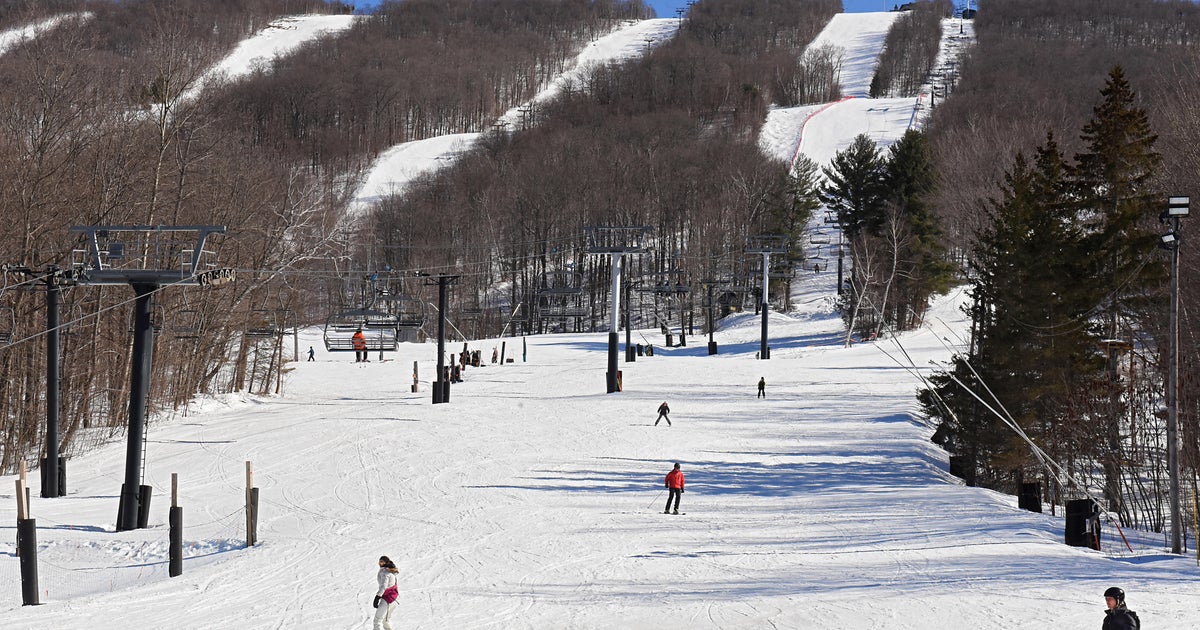MBTA Communities Law is constitutional, Massachusetts SJC rules, but current guidelines are unenforceable
BOSTON - The controversial MBTA Communities Law is constitutional, the highest court in Massachusetts ruled Wednesday. But for now, the Supreme Judicial Court says the housing guidelines issued to towns affected by the law are "legally ineffective."
The law requires cities and towns benefitting from T service to allow for more multi-family housing. When voters in Milton rejected the mandated zoning changes, Attorney General Andrea Campbell sued the town and the state pulled grant funding for seawall improvements and a new dock in Milton after the town voted down the zoning changes.
Chief Justice Kimberly Budd wrote that the court determined "that the act is constitutional and that the Attorney General has the power to enforce it." But the court also found a state agency did not follow proper rules when issuing the guidelines.
Reaction to MBTA Communities law ruling
In a statement, Gov. Maura Healey called the ruling "a major victory for our efforts to increase housing across the state and lower costs."
"We stand ready to work with Milton and all communities to help them understand how we will all benefit from the MBTA Communities Law and find ways for them to meet their unique housing needs," Healey said.
The governor said the Executive Office of Housing and Livable Communities is preparing to file emergency regulations by the end of the week to comply with the court's decision, and those regulations will take effect immediately once they are filed.
Campbell said the ruling is a "major step" toward bringing down housing costs.
"The state's highest court has made clear that communities subject to the law must allow for additional, responsible development - and that the law is mandatory, not voluntary," she said in a statement.
Milton divided on issue
Attorney Kevin Martin, representing Milton in the lawsuit, said the town was "very pleased" that the court recognized the importance of following the correct procedures when issuing regulations.
"In that respect today's decision was a victory not only for Milton but also the rule of law," Martin said in a statement. "We hope that in issuing new Guidelines, the Executive Office takes account of the many serious substantive concerns raised not only by Milton, but also by other affected communities."
"I think it's a good decision for Milton," Tom Callahan told WBZ-TV. He's a part of Affordable Inclusive Milton, a group that pushed for the MBTA Communities Act. "We've argued for a long time that Milton needs to do its part in the regional housing crisis," he added.
It's a heated issue that divided the town of Milton. Another resident argues that if the goal is to make transit more accessible, the Valley Road stop in Milton isn't a great example of that.
"It's very difficult to get down these stairs," said Diane DiTullio Agostino. "She can't just mandate what areas can be zoned until they assess what areas of housing that could also allow a person with disabilities access to the MBTA."
While the ruling says the MBTA Communities Act is constitutional, the justices stated that the guidelines to enforce the law should've included the public's input.
"The public hearings were never held, so we only had guidelines," DiTullio Agostino said.
Supporters of the law say it's the clarity cities and towns needed to move forward.
"We're excited the Supreme Judicial Court decided that Milton is not unique in that we like 177 communities will have to comply with the state law," Callahan said.
MBTA Communities Law
According to Healey, 116 cities and towns have already taken action to comply with the law, putting 3,000 new homes in the pipeline. Others had been watching to see how the court would rule on the issue.
Opponents say the law unfairly requires municipalities to bear the costs of adding hundreds of new residents in already dense areas. There was a push in Winthrop this fall for residents to vote on complying with the law. And in the small community of Holden, town manager Peter Lukes told WBZ-TV last year that he's not deterred by threats to pull grants.
"The Town of Holden's position is that we probably really wouldn't benefit from the grants, certainly not benefit as much as it would cost our community if we did go along with this legislation," he said. "Therefore, it's not something we want to participate in."



